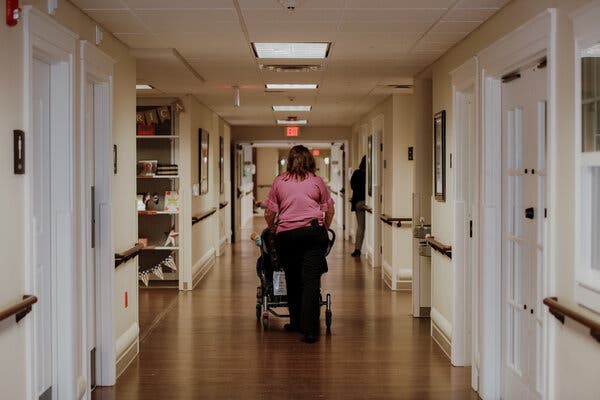Here are the telltale signs to look for in nursing homes to avoid, and resources that can point to better places.
Jordan Rau has spent a decade visiting nursing homes; talking to residents, their families and workers; and poring over inspection reports and lawsuits. He distilled his observations into this guide.
Few people want to go into a nursing home, but doing so can be the right choice if you or a loved one is physically or cognitively disabled or recovering from surgery. Unfortunately, homes vary greatly in quality, and many don’t have enough nurses and aides to give residents the care they need.
How do I find nursing homes worth considering?
Start with Medicare’s online comparison tool, which you can search by city, state, ZIP code or home name. Ask for advice from people designated by your state to help older and disabled people searching for a nursing home. Every state has a “no wrong door” contact for such inquiries.
You can also reach out to your local area agency on aging, a public or nonprofit resource, and your local long-term care ombudsman, who helps residents resolve problems with their nursing home.
You can find your area agency on aging and ombudsman through the federal government’s Eldercare Locator website or by calling 1-800-677-1116. Identify your ombudsman through the National Consumer Voice for Quality Long-Term Care, an advocacy group. Some people use private placement agencies, but they may refer you only to homes that pay them a referral fee.
What should I find out before visiting a home?
Search online for news coverage and for reviews posted by residents or their families.
Call the home to make sure beds are available. Well-regarded homes can have long waiting lists.
Figure out how you will pay for your stay. Most nursing home residents rely primarily on private long-term care insurance, Medicare (for rehabilitation stays) or Medicaid (for long-term stays if you have few assets). In some cases, the resident pays entirely out of pocket. If you’re likely to run out of money or insurance coverage during your stay, make sure the home accepts Medicaid. Some won’t admit Medicaid enrollees unless they start out paying for the care themselves.

